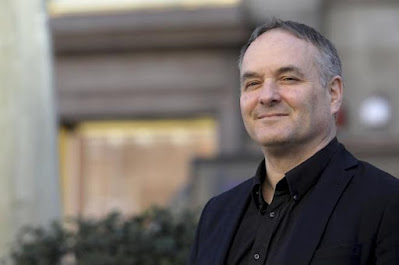The Power of Mathematics, Innovation & Optimal Learning, with John Mighton - Parts 1 and 2
Ever wondered why some people seem to have a natural knack for numbers while others find mathematics a constant struggle? This puzzling question and many others are explored in a fascinating conversation with one of Canada's most distinguished innovators, John Mighton. A self-taught mathematician, Mighton shares his unique perspective on mathematics and education, shedding light on the myth of the 'math gene' and offering practical strategies for optimal learning.
Mighton's
journey from a diverse background in literature and theatre to becoming a
renowned mathematician is nothing short of inspiring. His self-learning
approach challenges the commonly held belief that only certain
individuals possess the 'math gene.' Drawing from his experience as a
consultant for the Hollywood movie Good Will Hunting, Mighton offers
insights into the transformative power of mathematics and its potential
to break down societal barriers.
A significant focus of the
conversation is on the art of effective math teaching. Mighton underscores
the 85% rule for optimal learning, a scientifically-backed concept that
suggests learners perform best when they are about 85% proficient at a
task. He also explores how to create an ideal learning environment that
caters to both fast and slow learners, emphasizing that motivation plays
a crucial role, particularly for students who have a hard time keeping
up.
The conversation also delves into the power of mathematics as
a tool for social justice. Mighton highlights how mathematics can be used
to foster an equitable learning environment, dispel power dynamics in
classrooms, and create positive mindsets. He stresses the importance of
efficient teaching methods and discusses how helping students make their
own discoveries can significantly boost their confidence and
motivation.
Mighton's unique perspective on mathematics and
education offers a wealth of insights for educators, students, and
anyone intrigued by the transformative power of mathematics. He
demonstrates that math is not an exclusive domain for the 'gifted,' but a
subject that can be mastered by all with the right teaching methods and
learning environment. In the process, he challenges us to reconsider
our assumptions about education and the way we teach and learn.
However,
the conversation doesn't shy away from the challenges facing the
education sector. Despite the wealth of research available, Mighton points
out that there is not enough evidence-based research informing the
teaching of mathematics in schools. He discusses the inertia to the use
of research, the power relationships in educational systems, and the
need for teachers to have access to and be able to understand and apply
research in their practice.
This enlightening conversation serves
as a reminder of the immense potential of education when it is informed
by research, embraces innovation, and strives for social justice. Mighton's passion for mathematics and his commitment to transforming
education make this a must-listen for anyone invested in the future of
learning.
Part 2 of the Interview
In part 1 we explored the intriguing concept of intellectual inequality in education with John Mighton, the founder of Jump Math. John, an expert in mathematics, innovation, and optimal learning, provided a fascinating insight into the pervasive issue of intellectual poverty and how it can be addressed to promote intellectual equality in schools.
We discussed the importance of creating an equalized classroom and addressing intellectual inequality as a root cause of socioeconomic disparity. John believes that intellectual poverty is a major issue in our society and argues that it can be eradicated within two years by promoting intellectual equality in schools.
We touched on the need to prepare students for a rapidly changing world and the value of a liberal arts education in producing well-rounded individuals who can work across multiple domains of knowledge.
We also explored the concept of mindset as a barrier to innovation. We touched upon the idea that preconceived notions and negative beliefs about one's abilities can hinder success. John and Tom Carey suggest ways to overcome this negative mindset, such as creating a space for individuals to temporarily suspend their disbelief and have positive experiences. John emphasizes the role of mindset in both mathematics and innovation and how it can be developed and nurtured to achieve success.
In our conversation we delved into the importance of analogy in mathematics and writing. John explained how seeing connections and analogies between seemingly different things has led to major scientific progress. He discussed the Jump Math program's efforts to change the common perception that math lacks creativity by showing students the beauty and wonder of math.
Furthermore, we discussed the transformative work done by Jump Math in underrepresented communities. John stressed the importance of equalizing opportunities for intellectual growth and shared the organization's commitment to achieving this goal. He shared his personal experiences as a drama teacher and how they have shaped his perspective on education and intellectual growth.
As we wrapped up our discussion, we touched on the potential impact of AI on our world. John highlighted the importance of thoughtful leadership in an era of rapidly advancing technology. He believes that while AI holds significant potential, humans have the unique ability to appreciate the world's beauty in ways that machines cannot.
Overall, my conversation with John Mighton shed light on the importance of addressing intellectual inequality in education, fostering a positive mindset, and the power of mathematics and analogy in learning. His insights underscore the need for promoting intellectual equality to create a more equal and innovative society. We were left with a deeper understanding of the power of belief in oneself and the importance of addressing root causes to promote intellectual equality within the classroom and the world at large.
Discovery Links
About Jump Math & John Mighton
For What it's Worth Show Facebook Page




Comments
Post a Comment